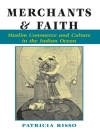This short book argues for the relevance of historical perspectives on mental health, exploring how these histories can and should inform debates about mental healthcare today. Why is it important to study the history of madness? What does it mean to voice these histories? What can these tell us about the challenges and legacies of mental health care across the world today? Offering an intervention into new ways of thinking – and talking – about ‘mad’ history, Catharine Coleborne explores the social and cultural impact of the history of the mad movement, self-help and mental health consumer advocacy from the 1960s inside a longer tradition of ‘writing madness’. Starting with a brief history of the relevance of first-person accounts, then looking at the significance of other ways of representing the psychiatric ‘patient’, ‘survivor’ or ‘consumer’ over time, this book aims to escape from dominant modes of writing about the asylum.
สารบัญ
Chapter 1: Why Talk about Madness?.- Chapter 2: Asylum Archives and Cases as Stories.- Chapter 3: The Asylum and its Afterlife.- Chapter 4: Extra-Institutional Care, or Madness Uncontained.- Chapter 5: Talking about Mental Health and the Politics of Madness.- Chapter 6: What’s the Story?.- Appendix 1: Mad Studies Conferences, Symposia and Events, 2014-2019.- Appendix 2: Mad Studies Networks and Social Media.- Index.-
เกี่ยวกับผู้แต่ง
Catharine Coleborne is Professor and Head of the School of Humanities and Social Science at the University of Newcastle, Australia. With Matthew Smith, she edits the Mental Health in Historical Perspective series for Palgrave. Her previous publications include Insanity, Identity and Empire: Colonial Institutional Confinement in Australia and New Zealand, 1870–1910 (2015). Catharine is currently second Chief Investigator on two Australian Research Council Discovery Projects focused on histories of mental health and psychiatry in Australia spanning the nineteenth and twentieth centuries.












